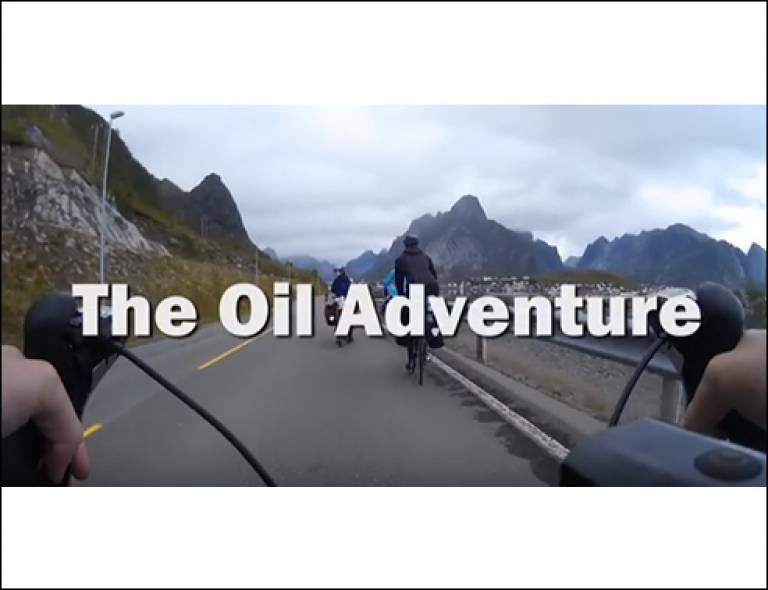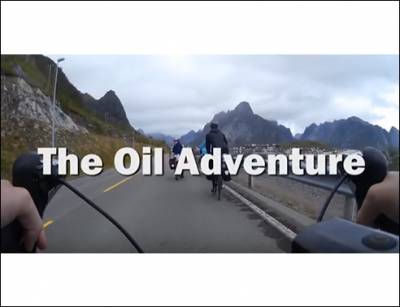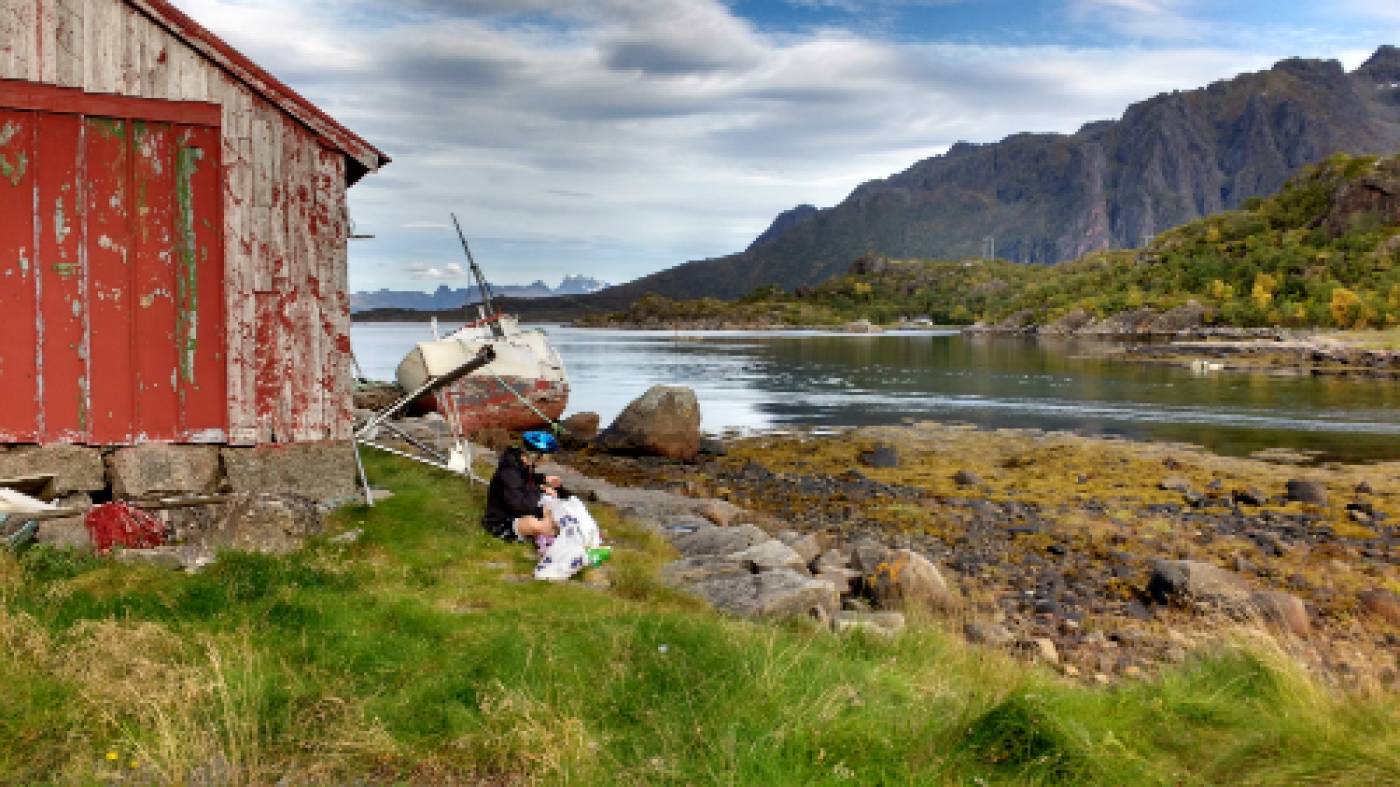The Oil Adventure: three UCL students examine Norway's complex relationship with oil
24 November 2016
 youtube.com/watch?v=U61JbxEHh5c" title="The Oil Adventure" target="_self">
youtube.com/watch?v=U61JbxEHh5c" title="The Oil Adventure" target="_self">
This autumn, three UCL students left Bloomsbury far behind and flew to the Arctic Circle to investigate Norway's relationship with oil thanks to a UCL Expedition Grant.
Mizu Nishikawa-Toomey, Flora Murphy and Lotte Ludekens spent two weeks filming The Oil Adventure, which charts their 480km cycle across north-west Norway interviewing locals and campaigners to elicit their views on climate change, Norway's oil industry and what they think the future holds. The final year students had to endure arctic temperatures and the rigours of wild camping in order to make a film about environmental activists who they say are the last line of defence against an expanding oil industry.
Unique mix of interests
The Oil Adventure came about a result of the students' unique mix of interests; Mizu (Physics BSc) is especially interested in the Arctic, Flora (Russian and German BA) loves making short documentary films and Lotte (French BA) loves cycle touring. But there was a common thread that united all three students - the impact climate change is having on the world.
Mizu explains, "The Arctic Circle is a fascinating place, with many different natural phenomena that cannot be seen elsewhere. It is also a region that is very sensitive to the effects of climate change. Like most people our age, we are concerned about climate change. We knew that Norway was the biggest exporter of oil in Europe, and that regions in the north lie inside the Arctic Circle, so we suspected that there would be conflicting arguments between environmental activists and the oil companies.
"We initially wanted to go to Svalbard, an island halfway between Norway and the North Pole, however this required us to learn how to use a gun in case of polar bear attacks! We decided to settle for somewhere slightly lower in latitude in mainland Norway. It turned out the issue of oil drilling was extremely relevant in Lofoten."
With a location in mind the trio approached the UCL Expeditions and Travel Committee to apply for a UCL Expedition Grant in order to fund the trip. Mizu, Lotte and Flora had to write a detailed proposal, outlining the route they planned to take, a day-to-day itinerary, and the topics they wanted to cover in their film.
Mizu adds, "I heard about the Expedition Grant from a friend. We probably could not have undertaken such an ambitious project without the grant, especially as Norway is one of the most expensive countries in the world. We submitted our proposal and the organisers of the grant suggested a few changes to our plan, which we took on board, then they decided to fund our trip."
The moral issues
In mid-September, with their funding secured, the students packed up their bikes and flew to Bodø on the northwest coast of Norway and started their two-week cycle through the Lofoten Islands. The first port of call, after stocking up on supplies, was to meet with local environmentalist Christopher Bergli Hermansen, to find out how activists had managed to stop offshore oil drilling platforms being set up in the Lofoten Islands. The students quickly discovered the tensions between the local fishing industry and the encroaching oil industry, and how these conflicting priorities are impacting on Norway's global image.

Mizu explained, "Many Norwegians were aware of the moral issues oil drilling posed, but were reluctant to voice them in a way which went against oil drilling completely. Norway is a country that was made prosperous because of the oil industry, but it is also ruining the beautiful landscape and nature that many feel patriotic about.
"Through our film we wanted to make it clear that environmental activists and campaigners are the last line of defence against the expanding oil industry, because the government is not interested in prioritising environmental concerns over economic concerns.
"We need people like Bent Bakkan and Tiril Vold Hansen (interviewees in the film) to constantly apply pressure to local governments to protect the environment. Small organisations do have the potential to change things in the local community and this can lead to positive changes on a national scale, and then on a global scale."
This a key message from the resulting short film, which they hope will give hope to people at home and provide some exposure to an issue and a country that is rarely talked about in the UK media.
Initial feedback on their film has been one of surprise. Most viewers, the students say, have been surprised to find out about the scale of the oil industry in Norway as it doesn't chime with Norway's image as an environmentally friendly country.
Despite the challenging nature of their experience, the trip has also helped to fuel the students' own interests. Mizu said, "Research in renewable energy is something that I plan to go into later on in my career. In terms of cycling, this was my first cycling trip and I plan to do more in the future, probably somewhere little warmer next time."
Flora added, "I found researching and working on this project really interesting, and have decided to do a research project this year about German energy politics and the NordStream 2 Pipeline project. I had made short documentaries before this trip, but never while cycling and camping with all the equipment. This was a challenge, but something I would definitely do again."
Lotte concluded, "Above all, I really enjoyed the cycle-touring element and definitely want to travel abroad with my bike more often. I had also never been involved in a film project before, and I now think it is something I would like to get some more experience of in the future."
 Close
Close

